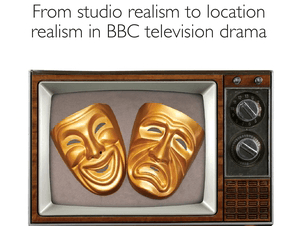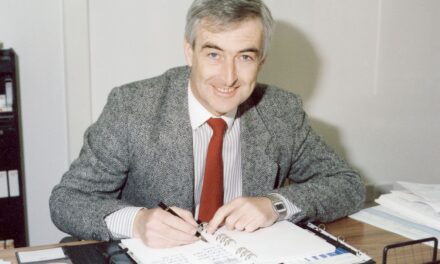In the early days of TV, some people apparently said that television was just radio, with pictures. Now, the general opinion would be that this is by no means the case. So it seems a little perverse to write here about something that could easily be described as radio with pictures: the BBC Young Musician 2014 competition final, as broadcast on BBC Four, though also covered on BBC Radio 3, on May 18th. (BBC Young Musician is a biennial UK competition for musicians below the age of 18. It is widely considered one of the most important classical music competitions in the country and many finalists and winners go on to have prestigious national and international careers). Television scholars often draw attention to the visual elements of television, and discuss the specificities of TV aesthetics. Yet, while clearly partaking of music television, event TV, competition reality TV, and arts programming, this broadcast seems to test the notion that television is primarily a visual medium. I decided to watch it and write about it here partly for that reason.

First of all, I should point out that while Young Musician has its own programme webpages within the BBC Four site, clicking on the front page iPlayer link marked ‘Final’ leads not to the television programme but to the Radio 3 broadcast. The programmes from the competition are available on iPlayer as TV broadcasts and the final is still available as I write (though it will be due to expire around the time this blog is published). Clicking through from the programme’s homepage to the Episodes page does produce the television episodes via iPlayer, but this lapse is notable. To link the iPlayer to Radio 3 rather than BBC Four is either an administrative error, or a deliberate choice suggesting that the audience for this programme would prefer to listen to it rather than watch it, in the first instance.
Indeed, during the four performances that made up the bulk of the two and a half hour programme, I found myself inclined to drift into listening rather than watching intently. Despite this, seeing the finalists on stage was an important part of the competition: any artist performing live needs to engage the audience and convey their own distinctiveness as stars as well as virtuosi. Indeed, comments made by judges and expert presenters all emphasised this as a significant aspect. The other parts of the broadcast, perhaps just filler to some, were clearly designed to make the experience more visual. The opening few minutes in particular featured colourful titles, fast editing and dynamic images, producing a sequence not dissimilar (though with a rather lower budget) to opening titles for any TV event such as the Olympics coverage or a football competition.

Later parts of the broadcast continue these themes, at one point even offering split screen.

In keeping with familiar TV coverage of a competition, we ‘meet’ the competitors, the judges and the main presenters. Clemency Burton-Hill introduced the event this time, as she did in 2012 and 2010. Musician, actor, author, and presenter, Burton-Hill is an obvious choice for this role: her father, Humphrey Burton, presented the competition coverage during his own career with the BBC as Head of Music and Arts, and Burton-Hill was recently described in The Independent as ‘the multi-talented new face of Radio 3’, and credited with boosting Radio 3’s audiences since taking over as one of two regular presenters for the Breakfast slot. However, she, and the radio channel, have also been criticised for trying to make classical music more popular, or populist, drawing Radio 3 closer to the likes of Classic FM. The visuals and approach taken in Young Musician 2014 are open to the same accusation.
As well as the notable use of colour for visual effect, and close-up to offer views that would not be possible as a member of the audience at the live performance in Edinburgh’s Usher Hall.

Young Musician 2014 also drew on familiar conventions of live competition shows. Thus the audience were treated to glimpses of the competitors preparing and training, or talking with their families

and backstage shots of them prior to taking the stage a well as the typical suspense shot as the winner was announced. Here the camera cut from jury chair James MacMillan to all three finalists awaiting the announcement, and the camera zoomed in on Martin as he was declared overall winner.

Of course, such footage, however brief, is essential in engaging the audience with the finalists as people, giving them depth as characters, as seen in all shows of this nature form Bake Off to The X Factor.
The choice of host, like the candid views of the young finalists out of their stage clothes, as well as additional presenters such as violinist Nicola Benedetti, trumpeter Alison Balsom, and guitarist Miloš Karadaglić, are all young (under mid-thirties), dynamic personalities who provide what seems to be considered a more attractive face of classical music to the general public. The broadcast works hard to counter the notion that classical music is elitist and stuffy, ensuring that we see pianist Martin cracking up his teacher during a lesson, or hear percussionist Elliott’s parents talking about buying dustbins from the local DIY store so their son can perform industrial percussion in the final.
It was not entirely successful in doing so, however. A comment posted in response to a Guardian online article by Thomas19999 began by congratulating the winner, pianist Martin James Bartlett, but went on to ask
What % of entrants for the Young Musician Competition are from state schools and how far and what % progress through the stages in comparison to the 7% of private schools that exist?
Accusations of elitism persist in classical music around performances, as well as radio stations and television broadcasts. Debates rage frequently about whether Radio 3’s small audiences mean it should be axed or altered (it typically attracts around 2 million listeners, and recent falls to less than the 2 million mark have promoted fresh concern). A blog by Jon Jacob following the 2013 Proms season notes that even the Doctor Who prom, attracting one of the biggest TV audiences, had 1.2 million, relatively small in comparison with a Doctor Who episode, which might pull around 5.5 million, or the announcement that Peter Capaldi would play the new Doctor (6.8 million). He points out that it might be unfair to compare a classical music TV broadcast with a popular reality show like The X Factor, which during the same period could pull 9.2 million viewers but some would see these figures as conclusive proof that classical music on TV will only ever succeed with a very niche audience. (Figures for the BBC Young Musician 2014 final are not yet available).
As a regular Radio 3 listener, classical concert attendee and consumer of classical music I am acutely aware of many of the stereotypes of classical music performers and audiences. I frequently berate my students for devaluing certain types of mass audience television yet I often feel uncomfortable that am still a typically bourgeois consumer of something most consider high culture at best, elitist at worst. The other side of the argument is, of course, that the BBC as a public service broadcaster should be championing a range of tastes and arts. Tony Hall, the BBC’s director general, is quoted in The Scotsman following this year’s Young Musician competition as saying: “BBC Young Musician is something that we’re very proud of at the BBC and 36 years after the competition was first held, it continues to hold a very special place at the heart of the cultural life of the UK.” This ‘special place’ may be cherished by only a very small percentage of the population and even as a classical music lover I probably would not have watched the Young Musician televised final had I not decided to write about it here. It was more engaging than I expected, and seeing the passion of the finalists was an added bonus. The delight on Martin’s face after he discovered he had won is undeniably infectious.

So my qualms about the so-called elitism of classical music don’t bother me sufficiently to stop me enjoying classical music where I can find it, and my experience of watching, rather than listening to, Young Musician has encouraged me to seek out more classical music on TV.
Lorna Jowett is a Reader in Television Studies at the University of Northampton. She is the co-author with Stacey Abbott of TV Horror: Investigating The Dark Side of the Small Screen (2013) and author of Sex and the Slayer: A Gender Studies Primer for the Buffy Fan (2005). She has published many articles on television, film and popular culture, and is currently working on a book about gender in the Doctor Who franchise.





